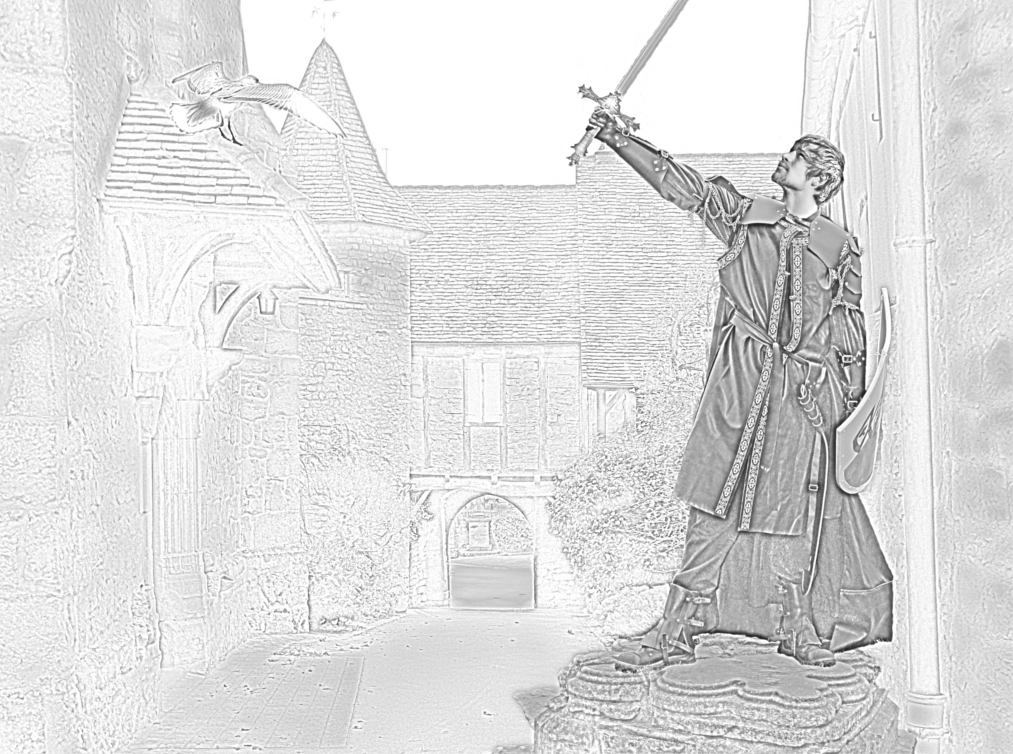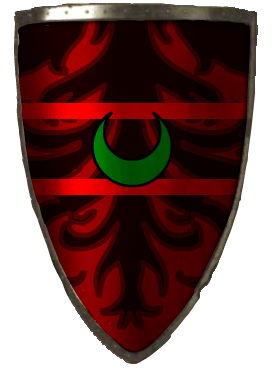The Legend of Sir Haren
Revolutionary Leader of Harenland
Unflinching dedication towards justice for the working man;Sir Haren Wheatsfield of Fleuvevory is one of the great heroes of the Union of Harenland. Author of The Rights of Working Men, founder of The Farmers' Militia, and instigator of The Farmers' Revolt, Sir Haren played a pivotal role in the the collapse of the Hinsor Empire and the birth of the Union of Harenland. The most important of these, however, was the Execution of Sir Haren Wheatsfield, which spread the revolutionary cause throughout the Empire. While many accounts of Sir Haren's life exist, The Ballad of Sir Haren Wheatsfield is both one of the most popular and the most true-to-life. Below is an illustrated rendition of the poem along with a historical timeline of verified events.
paid in death, rewarded with glory.
The Ballad of Sir Haren Wheatsfield
Sir Haren, Fleuvevory's pride and joy
Was once a Wheatsfield farmer boyWho traded hoe, sickle, and scythe
For sword and shield and raven's knifeHe rode to Signe all by his lonesome
To train his way out from the serfdomYaosing's great calling he did heed
And to the Emperor, he bent his kneeA sworn pledge to the Brotherhood of Unity
Daeller's guard dogs, the Empire's securityThe somber Fort Loscin, he served at with pride
Protecting our fields from the Elven divide
But though his feet walked down the patrol
His thoughts were spiraling out of controlThe Empire handled serfs with no gentleness
Ignoring or exploiting their perpetual wretchednessIf floods or droughts led their fields to famine
The aristocracy would worry only for their profit marginsAnd so 'The Rights of Working Men' was born
An attack on taxes, feudalism, and the highbornPublished under Scholar Renworth's name
It became a pamphlet of infamous fameBefore you could blink, the Empire decreed
For sedition and conspiracy, Renworth would bleed
So from Fort Loscin, Sir Haren fled
With with and child and loyal best friendAlong with a squadrn of knights who believed
In the farmer's rights to their own farm's deedThe built Fort Martelion high in the mountains
And formed a militia for the Empire's "negotiations"By turning their blades against brothers sworn
The Farmer's Revolt was officially bornThe Siege of Broret provided the men
For training of Regulars to beginAs mountain and winter protected their fort
From the Empire's soldiers and unsavory sorts





I'm no poet, so first of all: kudos for trying this format. Between your summary+introductory paragraph and timeline, I think you've covered Sir Haren's biography and the historical facts quite well. Which means your poem is free to be a bit more flowery with those matters. At some points it felt like you were trying to squeeze the details in and distorting the poetry as a result. In particular, I'm thinking of the line "If floods or droughts led their fields to famine/The aristocracy would worry only for their profit margins" -> 'profit margins' has to be one of the least poetic phrases ever, IMO :P I might be biased here, because rhyming couplets have never been my favorite style of poetry. But I feel like you could try to work more with the form instead of twisting it in knots to make it say things in a way it really isn't suited for. Still, I'm no poet... Poetry aside, everything else looks pretty solid. Good work, and good luck in the contest!